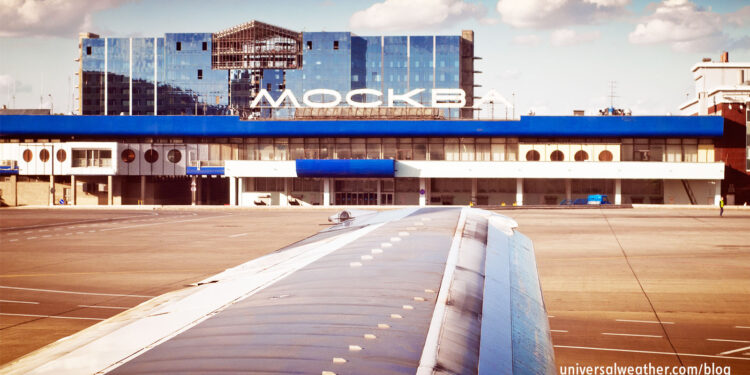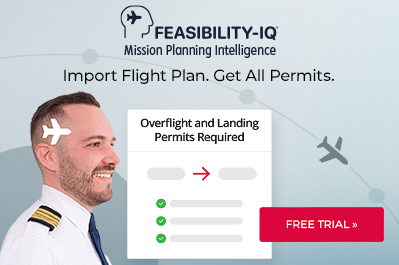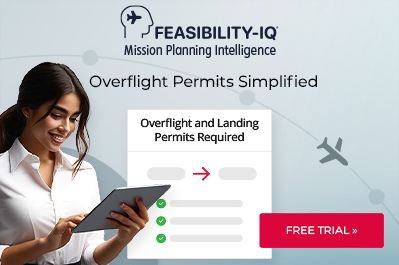Business Aircraft Operations in Moscow: Part 2 – Local Requirements and Considerations

This business aviation blog post continues from our article last week, entitled: “Business Aircraft Operations in Moscow: Part 1 – Which Airport to Pick.”
All business aircraft operators traveling to any of the Moscow airports (Vnukovo [UUWW], Domodedovo [UUDD], and Sheremetyevo [UUEE]) need permits, and lead times must be considered. It’s important to keep documentation and visa requirements at top of mind.
The following is an overview of what you need to know:
1. Permits are required for Russia
All aircraft require permits for every stop in Russia, and five business days’ lead time is officially required. For permit requests it’s necessary to provide certificates of airworthiness, registration, and insurance policy, along with requested routings and flight information regions. Permits are valid +24 hours. At least 24 hours is required for permit revisions. Note that if you wish to arrive earlier than the approved permit time – even 10 minutes early – you’ll need to revise your permit.
2. Be aware of all aircraft parking and airport considerations
It’s best to confirm aircraft parking in advance and avoid any changes to schedule that may impact confirmed parking, airport slots, or landing permits. Once an aircraft is parked, it will not be moved. There are no towbar requirements for any of the three Moscow-area airports. UUWW has 100 parking spots at Terminal 3, with additional parking at the VARZZ 400 area.
3. Be mindful of documentation requirements
All passengers and crew members arriving in Moscow need to have valid passports and – depending on nationality – appropriate visas. Crew visas on arrival are only possible at the UUEE office. If you land at UUWW or UUDD, you’ll have to wait for an agent to travel to UUEE to try to obtain a visa on arrival for you. If you arrive in Russia without a visa, a fine will be imposed, and the fine increases each time you arrive without a visa. Eventually, you’ll face being banned from Russia for up to five years. Note that crew visas are still necessary if you’re landing to pick up or drop off passengers and do not leave the airport. For this reason it’s recommended that you always obtain needed visas prior to traveling to this country. Also, when you apply for Russian visas, it’s always recommended to request a one-year multi-entry visa, although this requires additional cost and time to be processed.
4. Take into account fueling and de-icing considerations
If de-icing is needed, this should always be requested in advance. At UUWW there are only two de-ice trucks to handle all requests. Best practice is to request fuel in advance as the same trucks fuel all aircraft on the field. Fuel releases should always state fuel volume required. Note that fuel on arrival is not possible at UUWW if your next destination is international. In most cases both TS-1 and Jet A-1 are available; however, only TS-1 is available at UUWW. Do not onboard TS-1 unless your operations specifications manual says you can.
5. Consider in-flight catering options
There are restrictions on bringing food into Russia, and it’s best to verify these restrictions with your ground handler on a trip-by-trip basis. Dairy and meat products for example may be brought into Russia as long as they’re for personal use, are packaged appropriately, and are not from either Georgia or Armenia. In-flight catering is available at all three Moscow-area airports. It’s recommended to provide at least 24 hours’ notice for in-flight catering requests.
6. Know hotel and local transport options
From time to time – particularly during large local events – 4- and 5-star hotel accommodations sell out. Be aware that crew rooms in the Moscow area can cost 300-400 USD per night and will most likely increase in price during large events. Local pre-paid (car with driver) transportation should always be requested in advance.
Conclusion
For a smooth and seamless operation to Moscow, allow appropriate time to request and obtain landing permits, slots, and PPRs. Try to limit changes to schedule, after permits have been confirmed, to avoid complications. Always ensure that all onboard have required visas.
Questions?
If you have any questions about this article, contact me at abelperez@univ-wea.com.




